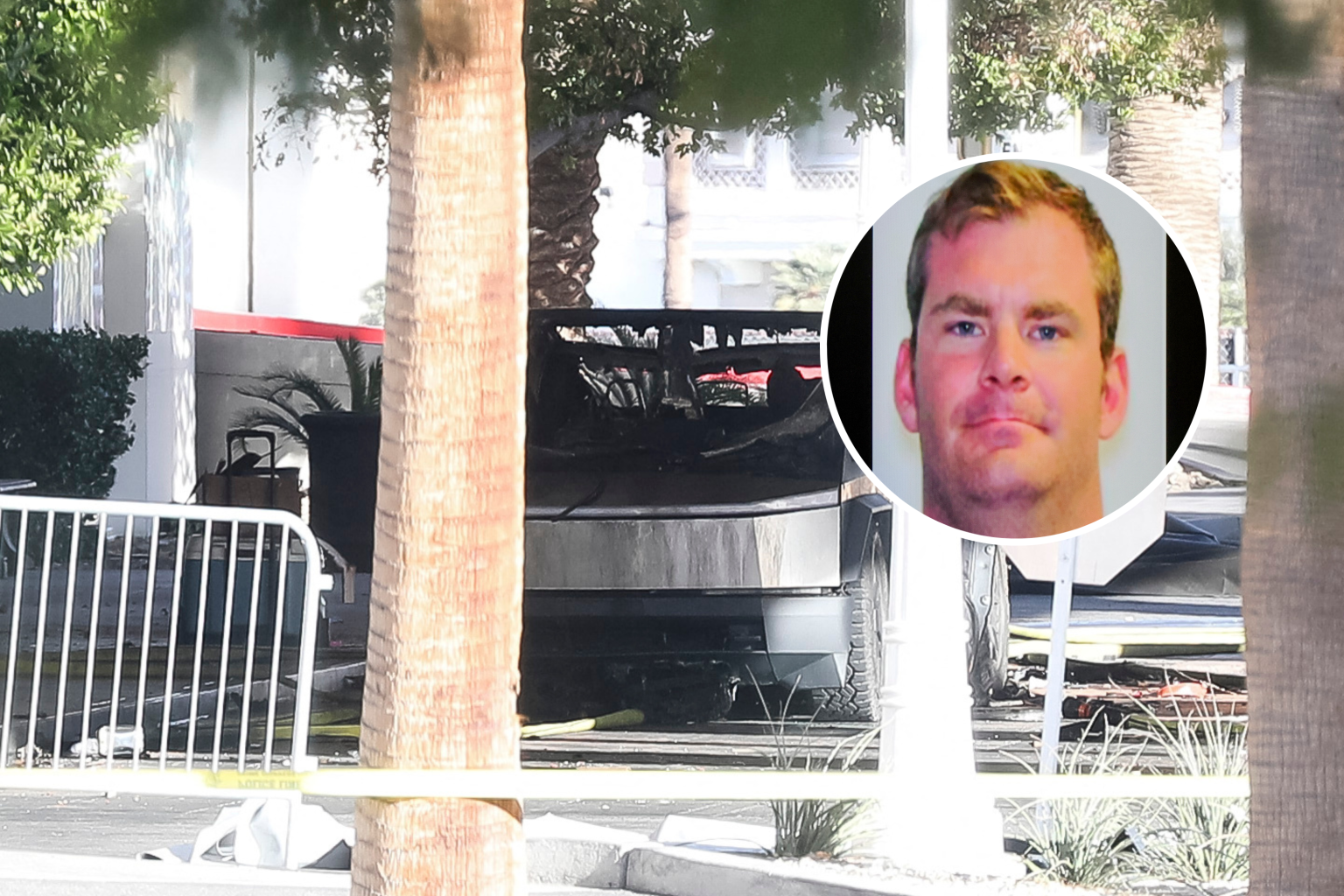The New Year’s Day explosion of a Tesla Cybertruck outside the Trump International Hotel in Las Vegas, culminating in the suicide of U.S. Army soldier Matthew Livelsberger, has prompted a thorough investigation into the circumstances surrounding the incident. Initial speculation centered on the potential political motivations behind the act, given the location and the involvement of a vehicle manufactured by Tesla, a company headed by Elon Musk, a known associate of then President-elect Donald Trump. However, preliminary findings suggest a different narrative, one of a decorated veteran struggling with the unseen wounds of war.
Livelsberger, a 37-year-old Green Beret with two tours of duty in Afghanistan, was discovered deceased within the burning vehicle, a self-inflicted gunshot wound to the head being the cause of death. The presence of gasoline tanks, camping fuel, and large firework mortars within the Cybertruck initially raised concerns about a potential attack. Further investigation revealed personal belongings including a handgun, a second firearm, identification documents, credit cards, an iPhone, and a smartwatch. Crucially, authorities also recovered handwritten notes left by Livelsberger, offering a glimpse into his troubled state of mind.
Contrary to initial speculation, emerging evidence points away from a politically motivated act. Law enforcement officials have stated they found no indication of animosity towards either Trump or Musk. Indeed, one of Livelsberger’s notes expressed the need for the country to unite behind both figures. Instead, the incident appears to be a tragic culmination of personal struggles, possibly exacerbated by post-traumatic stress disorder (PTSD) and other undisclosed issues. This perspective is further reinforced by the statements of Donell Harvin, former Washington D.C. chief of Homeland Security and Intelligence, who characterized the event as a tragic suicide rather than a politically motivated act of violence.
Harvin’s assessment aligns with broader concerns regarding the mental health of military personnel. He cited a 2024 Pentagon report highlighting the alarmingly high rate of suicide among active-duty service members. The report revealed that suicide was the leading cause of death within this demographic, exceeding combat fatalities by a substantial margin. This tragic statistic underscores the importance of providing adequate mental health resources and support for those who serve in the armed forces, a critical need brought into sharp relief by Livelsberger’s case.
Livelsberger’s own words, as documented in the recovered notes, offer further insight into his motivations. He described the incident not as a terrorist attack, but as a “wakeup call,” a desperate attempt to draw attention to unspecified concerns. He lamented the public’s fascination with spectacle and violence, suggesting that his drastic actions were a means to be heard. The notes also reveal a deep sense of personal torment, a need to “cleanse his mind” of the weight of lives lost, both those he knew and, chillingly, those he claimed to have taken.
The complexity of Livelsberger’s internal struggles is further illuminated by an email he reportedly sent to retired U.S. Army intelligence officer Sam Shoemate days before the incident. Described as manifesto-like, the email contained allegations of advanced drone technology, a cover-up of a 2019 airstrike in Afghanistan, and claims of government surveillance. Shoemate, sharing the contents of the email on a podcast, stated that Livelsberger urged him to bring these issues to the media to avert a potential “mutually assured destruction situation.” These revelations suggest a complex and troubled state of mind, potentially grappling with paranoia and a distorted perception of reality. While the veracity of these claims remains to be determined, they provide a valuable piece of the puzzle in understanding Livelsberger’s final actions.
The ongoing investigation into the Cybertruck explosion continues to piece together the events leading up to Livelsberger’s death. The FBI’s special agent in charge in Las Vegas, Spencer Evans, has publicly stated that the incident appears to be a tragic suicide involving a decorated combat veteran struggling with PTSD and other issues. The Department of Defense has cooperated with the investigation, providing Livelsberger’s medical records to local law enforcement. While the immediate focus is on understanding the specific circumstances surrounding this tragic event, the broader implications for military mental health care and support services remain a crucial area of concern. Livelsberger’s story serves as a stark reminder of the invisible wounds of war and the urgent need for comprehensive and accessible mental health resources for veterans and active-duty personnel.

